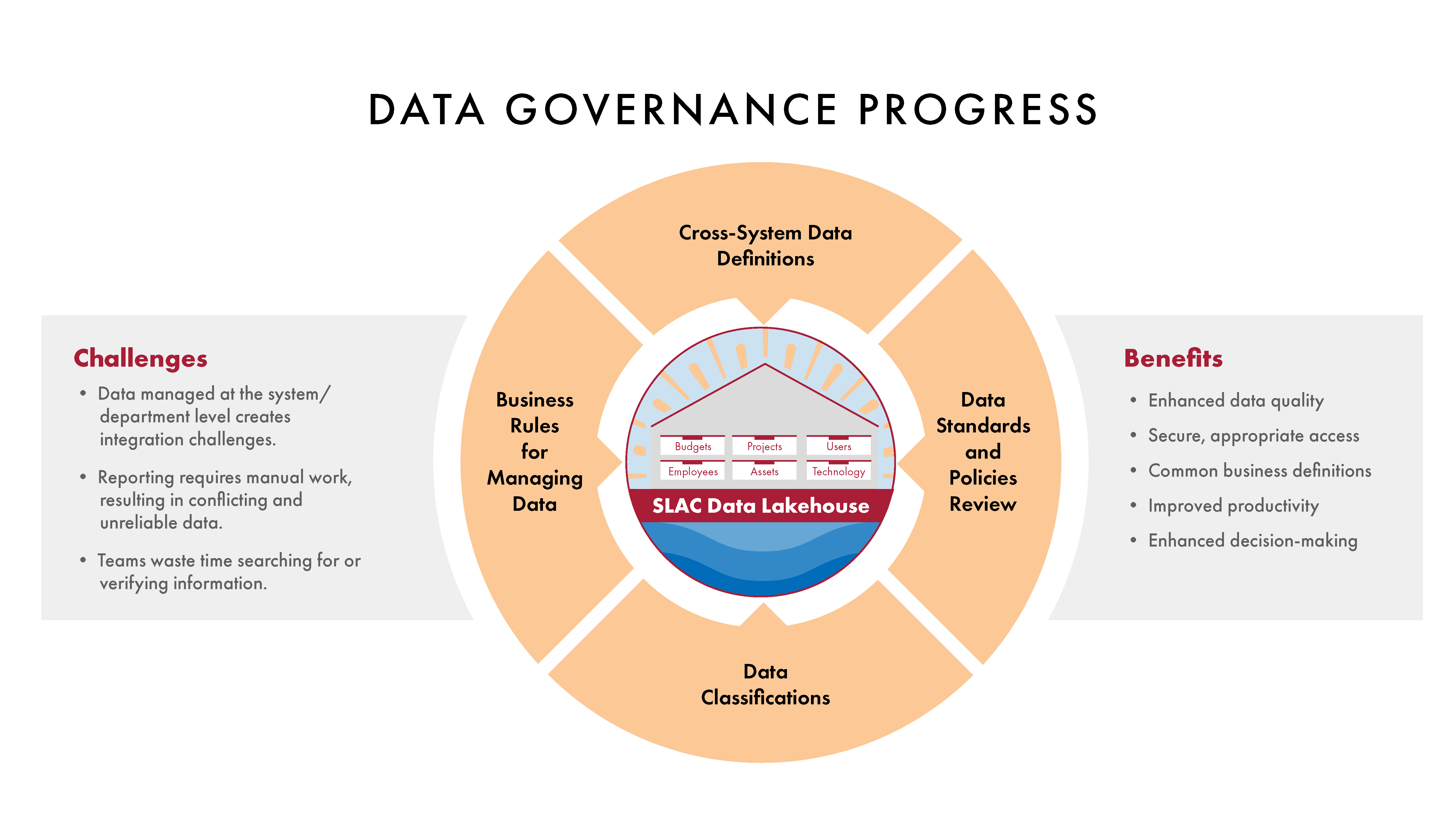Operational Data Transparency
- Provide a common business understanding of data
- Increase access to the right data by the right people
- Improve data quality
- Enable data governance and compliance
- Improve productivity
- Enhance decision-making
- Maximize the value of our strategic data assets
Key factors guiding the project
- Alignment with DOE Chief Data Office
- Collaboration across SLAC business offices
- Compliance with policy and cybersecurity standards



